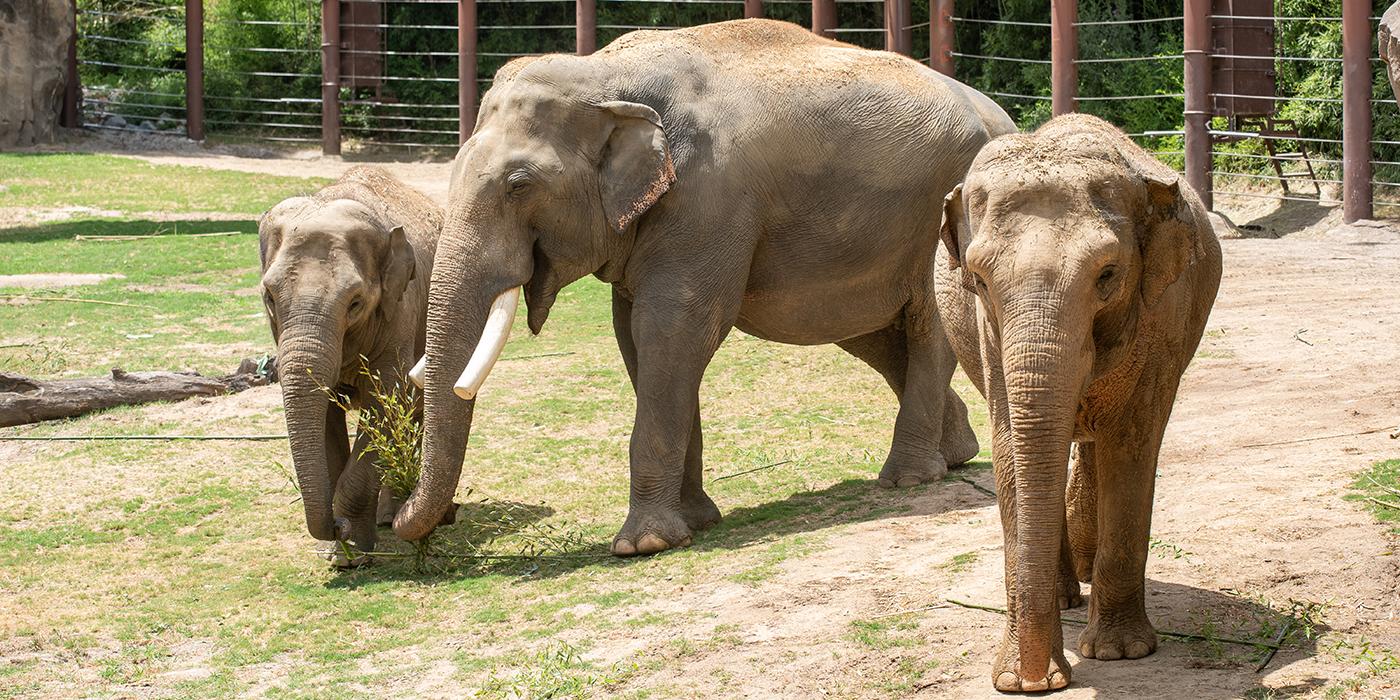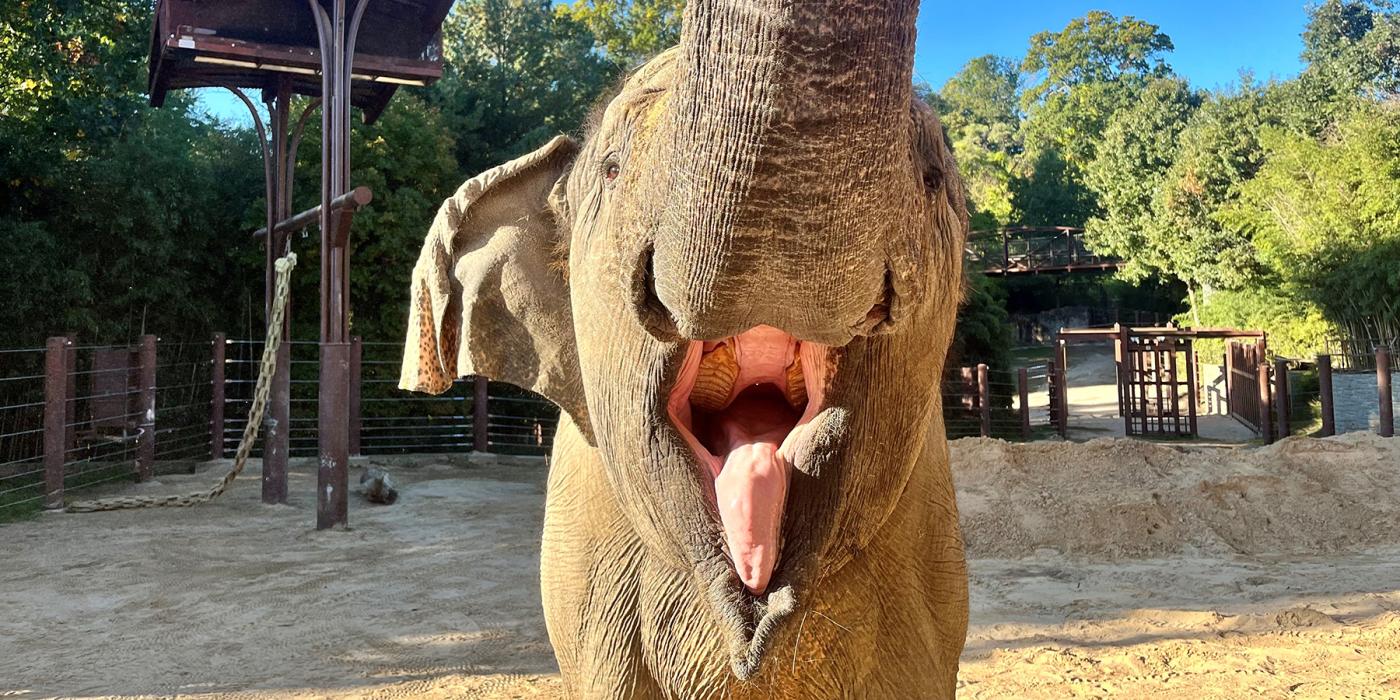Smithsonian’s National Zoo Veterinarians Use Innovative Treatments to Ease Asian Elephant Shanthi’s Arthritis
Footwear Provided by Teva Will Aid Healing of Lesions Caused by Arthritis
Ever since 41-year-old Asian elephant Shanthi was diagnosed with arthritis in her front wrists more than a decade ago, animal care staff at the Smithsonian’s National Zoo have been working to minimize the impact of the disease. Staff surmised that arthritic pain led Shanthi to bear weight on her front feet abnormally, ultimately causing lesions on several toenails and the surrounding tissues. After several months of administering daily pedicures, medicated foot baths, and cold laser therapy, animal care staff are trying two new methods of protecting her nails and feet: an innovative osteoarthritis therapy and boots, crafted and donated by Teva, to Shanthi’s specifications.
As animal care staff developed a treatment plan for Shanthi’s feet, they realized they had to treat the issues that they could see as well as the ones they couldn’t. Zoo veterinarians collaborated with an outside veterinarian to decrease the swelling in Shanthi’s joints using an innovative therapy called Interleukin-1 Receptor Antagonist Protein (IRAP), which has successfully slowed the progression of osteoarthritis for horses. A large sample of Shanthi’s blood was collected and then centrifuged, separating the blood cells from the plasma, which naturally contains IRAP. The plasma was frozen to negative 80 degrees Celsius, thawed and injected into Shanthi’s front wrists in three separate procedures. The IRAP treatment successfully blocked the inflammation, and keepers noticed that Shanthi was moving about her exhibit more overall, even swimming in the outdoor pools.
“This is the first time IRAP therapy has been applied to an elephant,” said Don Neiffer, the Zoo’s chief veterinarian. “It’s encouraging to see Shanthi move around her exhibit as she normally would, which tells us that the therapy has helped in a big way. While the lesions on Shanthi’s feet were a concern in their own right, they came about because of the underlying problem of her arthritis. Ultimately, controlling the symptoms of her arthritis will help her feet to heal, but this is a chronic problem for her.”
In addition to IRAP which directly treats Shanthi’s joints, the Zoo’s animal care and veterinary teams are adding a new tactic to treat the nails of her front feet. Many factors affect the health of elephants’ feet and toenails, including overall health, diet, exercise and the ground on which they walk. All of the Zoo’s elephants receive a pedicure every one to two weeks, which includes a thorough visual inspection, trimming of the soles and cuticles as well as shaping their toenails. The Elephant Trails exhibit uses multiple substrates, including sand, grass and rubber. Keepers encourage the elephants to exercise through daily husbandry training and by placing the elephants’ food in various enrichment feeders positioned throughout the exhibit.
“Treating Shanthi’s lesions with topical medications meant that we needed the medication to remain on the pads of her feet while preventing debris from entering the lesions for several hours at a time,” said Tony Barthel, Elephant Trails curator. “The benefit of these boots designed by Teva is their versatility. They protect her healing feet in much the same way humans wear bandages, and they allow her to move freely throughout the exhibit.”
Shanthi will wear the boots intermittently during treatment, both on and off exhibit.
While arthritis is a chronic condition that does not have a cure, the keepers, veterinarians and nutrition teams will continue to implement innovative ways to control Shanthi’s disease, ease her discomfort and improve her overall quality of life. The Zoo has provided updates on Shanthi’s condition since Feb. 17 on Facebook, and will continue to provide updates on its website and Facebook page.
Related Species:



